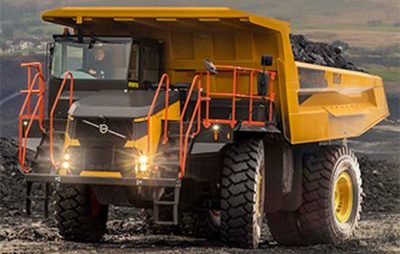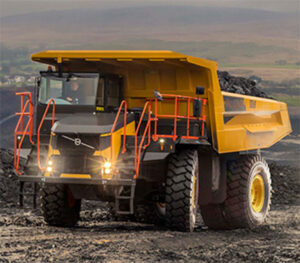

Operating a dump truck in Australia is more than just driving a massive vehicle; it’s a career that demands skill, precision, and an unwavering commitment to safety. Dump trucks play a critical role in industries like construction and mining, where they transport large loads of materials efficiently. However, managing these behemoths isn’t as simple as hopping into the driver’s seat. From mastering controls to adhering to strict Australian safety standards, dump truck operators require specialised training and knowledge.
This blog will guide you through everything you need to know about dump truck training, including the skills, certifications, and practices required for success in this field. Whether you’re pursuing a dump truck licence or exploring haul truck training, this article has you covered.
Understanding Dump Truck Operations
Types of Dump Trucks
 Dump trucks come in various types, each designed for specific tasks. In Australia, some of the most commonly used brands include:
Dump trucks come in various types, each designed for specific tasks. In Australia, some of the most commonly used brands include:
- Caterpillar: Known for their durability and advanced technology, Caterpillar dump trucks are staples in mining operations.
- Komatsu: These trucks are versatile and well-suited for a range of terrains, making them popular in construction and quarrying.
- Hitachi: Renowned for their fuel efficiency and reliability, Hitachi dump trucks are often used in large-scale projects.
Understanding the differences between these models helps operators select the right truck for the job, ensuring optimal performance and safety.
Mastering Basic Controls During Dump Truck Training
Operating a dump truck involves more than just steering. Operators must master a range of controls, including:
- Steering and Braking Systems: Dump trucks are much larger and heavier than regular vehicles, requiring drivers to handle turns, stops, and starts with precision.
- Hydraulic Systems: These are essential for loading and unloading materials safely and efficiently.
- Engine Retarding Systems: Also known as “Jake brakes,” these systems help control speed on slopes, reducing wear on the main braking system.
Familiarity with these systems ensures that operators can handle their trucks safely, regardless of the job site conditions.
Licensing and Certification Requirements in Australia
Heavy Vehicle Licenses
To legally operate a dump truck in Australia, you’ll need the appropriate heavy vehicle license. The class of license required depends on the truck’s size and configuration:
- Light Rigid (LR): Covers smaller dump trucks.
- Medium Rigid (MR): Suitable for medium-sized trucks with two axles.
- Heavy Rigid (HR): Required for most large dump trucks, especially those used in mining and construction.
Acquiring a heavy vehicle license is a vital step in obtaining a dump truck licence. It involves passing both a written test and a practical driving assessment, ensuring operators understand road rules and can safely control their vehicles.
Training Courses
Dump truck training courses are the gateway to obtaining the skills and certifications required for this career. Reputable institutions like My Solution Training offer programs that combine theoretical knowledge with hands-on experience. These courses typically cover:
- Vehicle Operation: Learning to handle dump trucks in various conditions.
- Safety Practices: Understanding workplace hazards and how to mitigate them.
- Site-Specific Rules: Familiarising yourself with regulations that vary by industry and location.
For those transitioning to haul truck training, specialised programs provide additional skills needed for larger, more advanced vehicles used in mining operations.
Pre-Operational Checks and Maintenance
Pre-Start Inspections
Before starting a dump truck, operators are required to conduct a pre-start inspection. This routine ensures that the vehicle is in safe working condition and minimises the risk of accidents. Key checks include:
- Tires: Look for signs of wear or damage and ensure proper inflation.
- Brakes: Test for responsiveness and functionality.
- Fluid Levels: Check oil, coolant, and hydraulic fluid levels.
These inspections are especially important in industries like mining, where equipment failure can have severe consequences.
Routine Maintenance
Dump trucks are significant investments, and regular maintenance is essential to maximise their lifespan. Maintenance tasks include:
- Cleaning or replacing air and fuel filters.
- Lubricating moving parts to reduce wear and tear.
- Scheduling periodic professional servicing.
Whether you’re pursuing dump truck training or already hold a dump truck licence, understanding pre-operational checks and routine maintenance is essential for safety and efficiency.
Safe Operating Practices
Load Management
One of the most critical aspects of dump truck operation is load management. Overloading or unevenly distributed loads can destabilise the truck, leading to accidents. Operators must:
- Calculate load capacity based on the truck’s specifications.
- Ensure materials are evenly distributed in the truck bed.
Proper load management enhances vehicle stability and minimises wear on suspension and tires.
Navigating Terrain
Australia’s diverse landscapes pose unique challenges for dump truck operators. From rocky quarry sites to muddy construction zones, navigating terrain requires specialised skills:
- Steep Slopes: Use low gears and engine retarding systems to maintain control.
- Loose Surfaces: Reduce speed and increase stopping distances to prevent skidding.
For operators undergoing haul truck training, navigating rugged terrains is a key focus, especially in large-scale mining projects.
Speed Control
Speed limits on job sites are often much lower than on public roads, and for good reason. Dump trucks carry heavy loads, and higher speeds increase the risk of tipping or collisions. Operators must:
- Adhere to site-specific speed limits.
- Adjust speed according to load weight and road conditions.
Compliance with Australian Safety Standards
Occupational Health and Safety (OHS) Regulations
Australia has stringent Occupational Health and Safety (OHS) regulations governing heavy vehicle operations. These standards aim to minimise workplace risks and ensure the well-being of all workers. Key requirements include:
- Regular safety audits.
- Clear communication of site-specific hazards.
- Mandatory safety training for all operators.
Adhering to these regulations is a fundamental part of obtaining and maintaining a dump truck licence.
Personal Protective Equipment (PPE)
Operators are required to wear Personal Protective Equipment (PPE) to reduce the risk of injury. Essential PPE items include:
- High-visibility clothing.
- Helmets and safety boots.
- Gloves and protective eyewear.
By adhering to these standards, operators contribute to a safer working environment for themselves and their colleagues.
Emergency Procedures
Hazard Identification
Operators must be able to recognise potential hazards before they become serious problems. Common hazards include:
- Uneven terrain that could destabilise the truck.
- Adverse weather conditions, such as heavy rain or fog.
Early identification allows operators to take proactive measures, such as adjusting driving techniques or reporting unsafe conditions.
Emergency Response
Despite all precautions, emergencies can still occur. Knowing how to respond effectively can save lives. Operators are trained to:
- Safely bring the vehicle to a stop in case of mechanical failure.
- Administer first aid if a co-worker is injured.
- Communicate with site supervisors and emergency services.
Being prepared for emergencies is a key component of dump truck training and haul truck training programs.
Continuous Skill Development
Advanced Training
For those looking to expand their careers, advanced training programs are available. These courses cover specialised skills, such as:
- Operating articulated dump trucks.
- Managing large-scale hauling projects.
- Using modern technologies like GPS and automated systems.
Advanced training often builds on the foundation provided by dump truck training, making it a valuable next step for career growth.
Staying Ahead with Modern Technology in Dump Truck Training
The heavy vehicle industry is constantly evolving. New technologies, such as electric and autonomous dump trucks, are transforming the landscape. Operators must stay informed about these developments to remain competitive in the job market.
Becoming a dump truck operator in Australia is a rewarding career choice, offering stability and opportunities for growth. By mastering essential skills, adhering to safety standards, and committing to lifelong learning, you can excel in this field.
The demand for skilled dump truck operators is only growing, driven by Australia’s thriving construction and mining industries. Whether you’re obtaining a dump truck licence, undergoing dump truck training, or advancing to haul truck training, the opportunities are vast. With the right preparation and dedication, you can turn your interest in heavy vehicles into a fulfilling career. Additionally, completing safety training such as the S11 course, which is mandatory for working in mines, ensures you meet industry safety standards and increase your employability. So, are you ready to climb into the driver’s seat and take control of your future?
Contact us for one-on-one training and personalised guidance to help you achieve your career goals. Our expert instructors are here to provide the support and skills you need to succeed.
